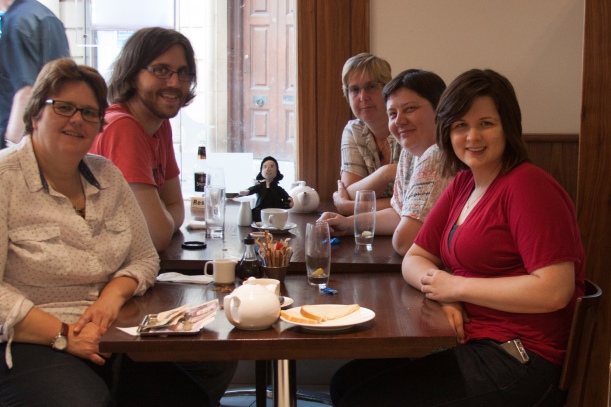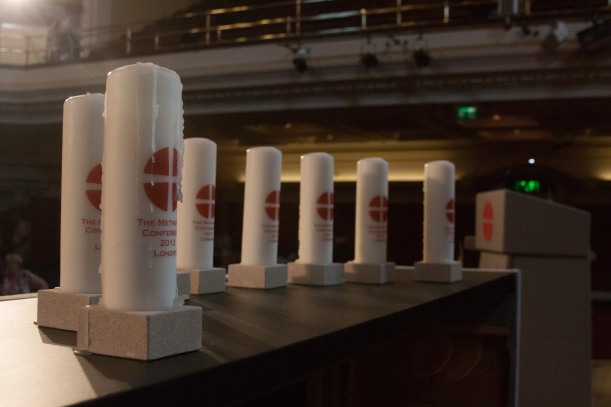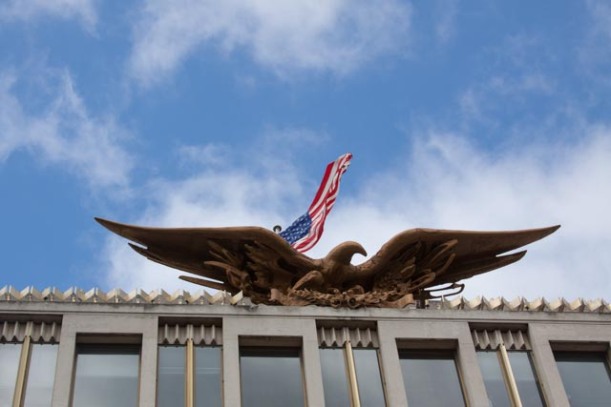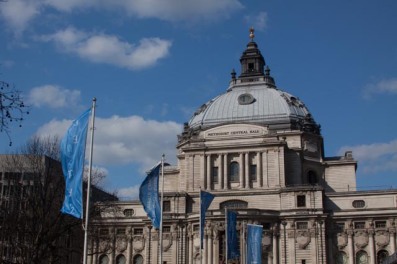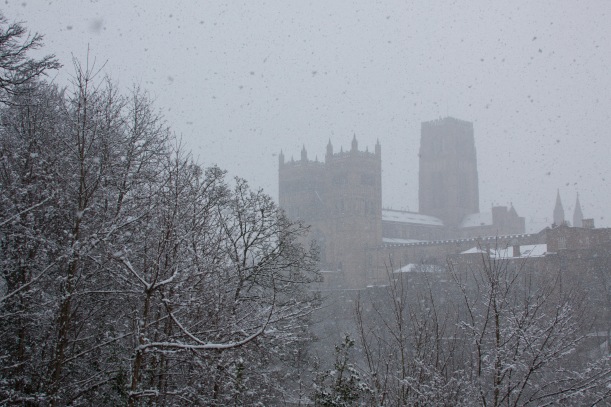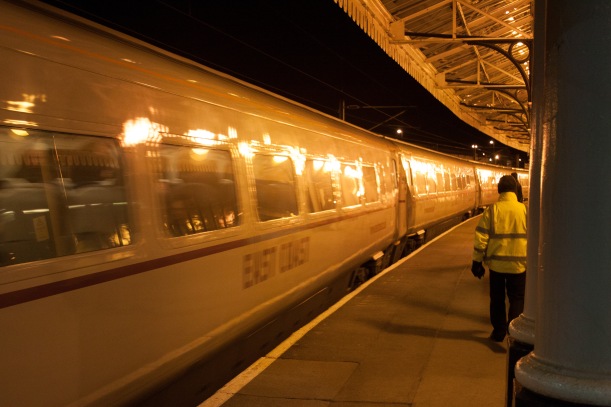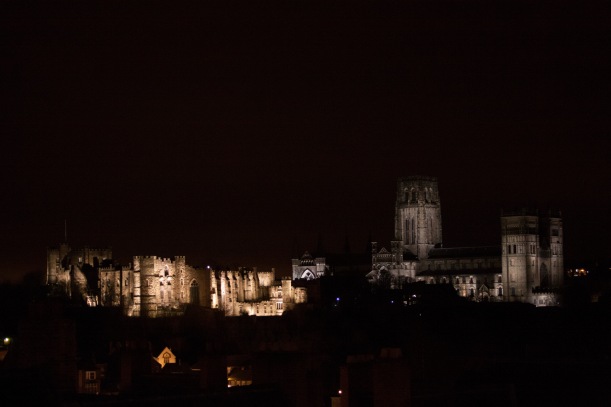So, I know that today is Palm Sunday, which is super important, however, it is also the feast day for my favorite saint, Cuthbert of Lindisfarne. In the United Methodist Church, we do not have saints. They have never been an important part of Wesleyan spirituality, however, I have always had a strong attraction to saints, and my own faith is always strengthen when I read about their lives.
I first heard of Cuthbert during the year I spend studying in England. He was a shepherd, then monk, then Bishop in northern England in the 7th century. His life was marked by humility, simplicity, a love of nature, and reconciliation.
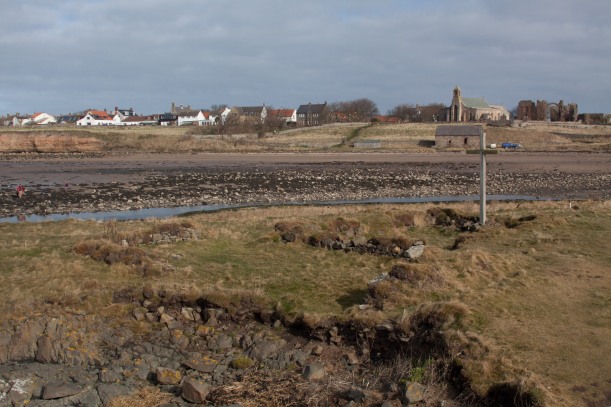
The foundation of the monastic cell where St. Cuthbert would go and pray on the island of Lindisfarne. The tidal patterns cut off this island from the main island at high tide.
My favorite story is from one of Cuthbert’s many times when he would leave the monastery and pray. Once a younger monk followed Cuthbert to see where he went and observed him wading into the ocean where he would frequently recite the psalms. When he came out, otters came and helped to warm his hands.

Me imitating St. Cuthbert’s prayer in the ocean at Lindisfarne. Sadly no otters washed my feet when I came out.
St. Cuthbert is buried in Durham and I would frequently visit his shrine in the Cathedral which was a short walk from my dorm room.The Cathedral and his shrine were places when I could palpably feel God’s presence and was for me a tremendous means of grace during a wonderful and difficult year.
On this day each year, I have a cup of tea, remember my friends in England and the ways in which God shaped my understanding of my call to ministry, and I give thanks to St. Cuthbert for helping me understand how to better follow Jesus.

The shrine of St. Cuthbert in Durham Cathedral.
Here is the prayer for today from the Church of England:
Almighty God, who called your servant Cuthbert from following the flock to follow your Son and to be a shepherd of your people: in your mercy, grant that we, following his example, may bring those who are lost home to your fold; through Jesus Christ, you son, our Lord, who is alive and reigns with you, in the unity of the Holy Spirit, one God now and forever. Amen.




